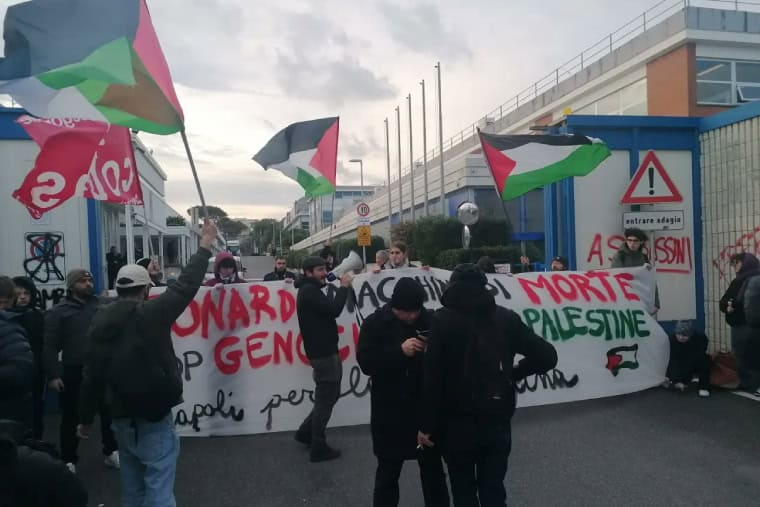
Dock workers in Italy and France have successfully stopped around 14 tonnes of munitions bound for Israel.
CGT union members at the Fos-sur-Mer port in France became aware of the shipment—and refused to handle Israel’s weapons of genocide.
Then, dock workers in Italy in the USB and SI Cobas unions took further action against the ship in Genoa.
Fabio, a Si Cobas union member, spoke to Socialist Worker about workers showing solidarity with Palestine in Italy.
“There have been several actions, and several examples of picket lines and protests against Israeli goods since 7 October,” he said.
Si Cobas has a large presence in Italy’s logistics sector—“one of the most important when it comes to Israel’s genocide and war more generally”.
Si Cobas organised the first strike on 17 November 2023, and then on 24 February 2024. Fabio said the February strike was significant because it was followed by the largest Palestine protest in Milan of around 50,000 people.
He added, “In Si Cobas, our idea is of course that we involve ourselves in the protests and try to coordinate them. But we also bring workers’ involvement, and involve migrants who are part of the working class.
“We think that the participation of workers can bring the highest level of struggle—that workers’ action can do the most damage to the system.
“Of course demonstrations are important, but strikes brings the struggle to the level of challenging the system. The genocide in Palestine is not just the matter of a few war industries, it is a question of the entire system.”
Fabio explained that not all trade unions follow Si Cobas through fighting over political demands.
In June 2024, there was a strike over economic demand. “Si Cobas used it to concentrate on the port of Genoa to politicise the strike, opposing the war economy and genocide in Palestine,” Fabio said.
Si Cobas has organised a strike on 20 June to follow up on its action against Israel. “It coincides with a strike of the mechanical and automotive workers,” Fabio explained.
“Like in many places, the unions here work hard to keep workers separate. But we need to be aware of the unifying conditions of our situation, that it’s essential that all workers take action together.”
Fabio explained that there have been strong struggles over other political questions, such as police violence. “They have won, so we have this experience that we can draw from, and it gives confidence,” he said.
Bu, in the wider Italian labour movement, there has been a lack of struggle—and the union leaders aren’t pushing political demands.
“We are optimistic that there will be a new wave of struggle in Italy,” Fabio said. “But for now there are only signs.”
Workers’ action over Palestine in Italy is something that the international labour movement must draw from.
Israel’s genocide is the product of an imperialist system—and workers are powerfully placed to fight it.
